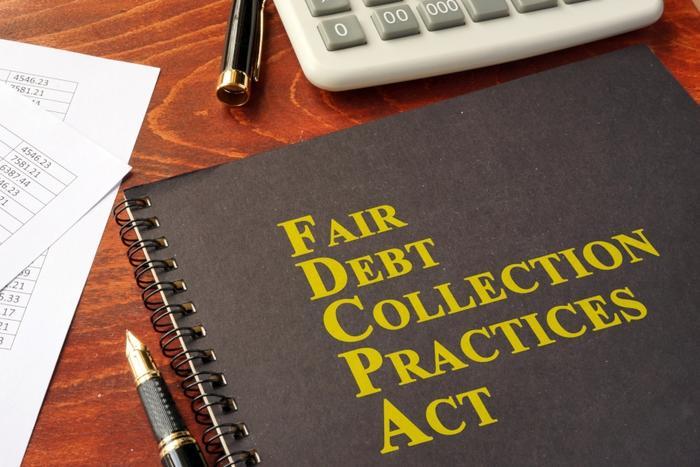Welcome!
Advantage Legal Center attorneys have many years of experience providing affordable legal solutions for Texans with various debt problems. Whether you are overwhelmed with credit card debt, harassed by creditors, or facing lawsuits from creditors, don’t stress by going at it alone. Our law firm can give you the Advantage you need! Call (800) 983-2838 or fill out the form on our Contact Us page for a FREE no-obligation evaluation of your situation. If you are an existing client, please call (800) 983-2838 for assistance.
-
Texas Finance
Code Enforcement -
Creditor Lawsuit
Defense -
Bankruptcy

Texas Finance Code Enforcement:
Texas law allows lenders to charge enormous interest rates, often with an APR of several hundred percent. However, Texas also has some of the highest consumer protections in the USA, and some of these protections related to debt collection are contained in the Consumer Finance Code. While Texans are protected under federal laws in the Fair Debt Collection Practices Act (FDCPA), it does not apply to original creditors. The FDCPA applies to third-party debt collection agencies, while the Texas Finance Code applies to original creditors and third-party debt collectors. If you are harassed directly by the creditor you borrowed the money from, then the FDCPA is not enforceable, but the Texas Finance Code can be enforced.
Examples of Texas Finance Code Violations:
Sec. 392.301. THREATS OR COERCION. (a) In debt collection, a debt collector may not use threats, coercion, or attempts to coerce that employ any of the following practices:
(1) Using or threatening to use violence or other criminal means to cause harm to a person or property of a person;
(2) Accusing falsely or threatening to accuse falsely a person of fraud or any other crime;
(3) Representing or threatening to represent to any person other than the consumer that a consumer is wilfully refusing to pay an undisputed consumer debt when the debt is in dispute and the consumer has notified in writing the debt collector of the dispute;
(4) Threatening to sell or assign to another the obligation of the consumer and falsely representing that the result of the sale or assignment would be that the consumer would lose a defense to the consumer debt or would be subject to illegal collection attempts;
(5) Threatening that the debtor will be arrested for nonpayment of a consumer debt without proper court proceedings;
(6) Threatening to file a charge, complaint, or criminal action against a debtor when the debtor has not violated a criminal law;
(7) Threatening that nonpayment of a consumer debt will result in the seizure, repossession, or sale of the person’s property without proper court proceedings; or
(8) Threatening to take an action prohibited by law.

Fair Debt Collection Practices Act Enforcement:
“There is abundant evidence of the use of abusive, deceptive, and unfair debt collection practices by many debt collectors. “Abusive debt collection practices contribute to the number of personal bankruptcies, to marital instability, to the loss of jobs, and to invasions of individual privacy.”
The above is quoted from The Fair Debt Collection Practices Act (FDCPA), which was enacted to protect consumers from harsh collection practices. Even if you owe a debt, you have many rights, which can be violated by debt collectors’ attempts to persuade you to pay them. Debt collectors have been known to make threats and unreasonable demands in an attempt to scare consumers. While these laws do not apply to original creditors, it is common for debt collection to be outsourced to a third party or for debts to be sold to another party after a period of delinquency.
Some of these violations are more common than others, and there are many additional protections in addition to the ones listed below. An attorney who knows your rights can give you a tremendous advantage when dealing with debt collectors. In fact, violations could offset what you owe or cause the debt to be dismissed entirely. In some cases of repeated violations, collectors could be held liable to compensate you thousands of dollars in addition to attorney fees. If you are delinquent with any creditor or expect that you may be in the near future, contact Advantage Legal Center today!
Below are Examples of FDCPA Violations:
- Communicating with the consumer debtor or anyone else once the debt collector knows the debtor is represented by an attorney.
- Communicating with the consumer debtor or anyone else once the debt collector knows the debtor is represented by an attorney.
- Informing others, including family, friends, neighbors, and coworkers that you owe a consumer debt.
- Using language or symbols on envelopes or any mail parcels that indicate that the communication is from a debt collector or the contents of the mail parcel relates to the collection of debt.
- Using or threatening the use of physical violence or other means to harm one’s person, reputation, or property.
- Using language that is intended to abuse the person listening.
- Calling consumer debtors repeatedly with the intent to annoy, abuse, and harass.
- Not divulging their identity and collection agency name.
- Represent falsely that they are a police officer, government official, or affiliated with the United States government.
- Falsely represent that they are an attorney or that their communication is from an attorney.
- Threaten that non-payment will result in arrest or imprisonment.
- Threaten that nonpayment will result in loss of property or loss of wages.
- Threaten to take action that the collector cannot legally take. One such violation may be the garnishment of wages in a state that does not permit them.
- State that the consumer committed a crime.
- Threaten to communicate information that is false or should be known to be false.
- Use false, misleading, or deceptive information in an attempt to collect a debt.

If a debt is left unresolved, a creditor can file a lawsuit to collect the debt. If the court grants a judgment, creditors will be allowed additional debt collection methods. It is important to know that judgments in Texas can be renewed every ten years indefinitely. This means a judgment may have to be paid out of probate after death. While Texans are generally protected against wage garnishment from ordinary creditors, once a creditor or debt collector obtains a judgment, they may be able to:
- Garnish your bank accounts
- Put a lien on or seize non-homestead real estate
- Seize other nonexempt assets, including investments
- Collect additional interest, legal fees, and collections costs
Many people think bankruptcy is the only answer when faced with a creditor lawsuit. While bankruptcy can stop a creditor seeking to obtain a judgment, Not everyone qualifies for a Chapter 7, and paying back debt in a Chapter 13 repayment plan can often be very expensive for those who do not pass the Chapter 7 Means Test due to their income or assets. When faced with a creditor lawsuit, an attorney can often arrange an affordable out-of-court settlement for you. Often, when a creditor files a lawsuit, it is in an attempt to obtain a “default judgment” because they know that few people respond to the summons. Answering a lawsuit can be strenuous for someone unfamiliar with the law.
An Advantage Legal Center attorney can represent you, prevent a default judgment, and work to negotiate an out-of-court resolution with your creditor without you ever needing to appear in court. These resolutions may include an out-of-court settlement for less than what is owed, paid in a lump sum or with small monthly payments, or a zero-interest long-term repayment arrangement. We work with our clients to provide affordable and flexible legal fees. If you have a creditor or collection agency threatening legal action, are being contacted by an attorney to collect a debt, or recently received a summons, contact us right away! Your time to take action is limited; the sooner you act, the more options you may have.


- Texas Finance Code Enforcement
-
Creditor Lawsuit
Defense -
Bankruptcy

Texas Finance Code Enforcement:
Texas law allows lenders to charge enormous interest rates, often with an APR of several hundred percent. However, Texas also has some of the highest consumer protections in the USA, and some of these protections related to debt collection are contained in the Consumer Finance Code. While Texans are protected under federal laws in the Fair Debt Collection Practices Act (FDCPA), it does not apply to original creditors. The FDCPA applies to third-party debt collection agencies, while the Texas Finance Code applies to original creditors and third-party debt collectors. If you are harassed directly by the creditor you borrowed the money from, then the FDCPA is not enforceable, but the Texas Finance Code can be enforced.
Examples of Texas Finance Code Violations:
Sec. 392.301. THREATS OR COERCION. (a) In debt collection, a debt collector may not use threats, coercion, or attempts to coerce that employ any of the following practices:
(1) Using or threatening to use violence or other criminal means to cause harm to a person or property of a person;
(2) Accusing falsely or threatening to accuse falsely a person of fraud or any other crime;
(3) Representing or threatening to represent to any person other than the consumer that a consumer is wilfully refusing to pay an undisputed consumer debt when the debt is in dispute and the consumer has notified in writing the debt collector of the dispute;
(4) Threatening to sell or assign to another the obligation of the consumer and falsely representing that the result of the sale or assignment would be that the consumer would lose a defense to the consumer debt or would be subject to illegal collection attempts;
(5) Threatening that the debtor will be arrested for nonpayment of a consumer debt without proper court proceedings;
(6) Threatening to file a charge, complaint, or criminal action against a debtor when the debtor has not violated a criminal law;
(7) Threatening that nonpayment of a consumer debt will result in the seizure, repossession, or sale of the person’s property without proper court proceedings; or
(8) Threatening to take an action prohibited by law.

Fair Debt Collection Practices Act Enforcement:
“There is abundant evidence of the use of abusive, deceptive, and unfair debt collection practices by many debt collectors. “Abusive debt collection practices contribute to the number of personal bankruptcies, to marital instability, to the loss of jobs, and to invasions of individual privacy.”
The above is quoted from The Fair Debt Collection Practices Act (FDCPA), which was enacted to protect consumers from harsh collection practices. Even if you owe a debt, you have many rights, which can be violated by debt collectors’ attempts to persuade you to pay them. Debt collectors have been known to make threats and unreasonable demands in an attempt to scare consumers. While these laws do not apply to original creditors, it is common for debt collection to be outsourced to a third party or for debts to be sold to another party after a period of delinquency.
Some of these violations are more common than others, and there are many additional protections in addition to the ones listed below. An attorney who knows your rights can give you a tremendous advantage when dealing with debt collectors. In fact, violations could offset what you owe or cause the debt to be dismissed entirely. In some cases of repeated violations, collectors could be held liable to compensate you thousands of dollars in addition to attorney fees. If you are delinquent with any creditor or expect that you may be in the near future, contact Advantage Legal Center today!
Below are Examples of FDCPA Violations:
- Communicating with the consumer debtor or anyone else once the debt collector knows the debtor is represented by an attorney.
- Communicating with the consumer debtor or anyone else once the debt collector knows the debtor is represented by an attorney.
- Informing others, including family, friends, neighbors, and coworkers that you owe a consumer debt.
- Using language or symbols on envelopes or any mail parcels that indicate that the communication is from a debt collector or the contents of the mail parcel relates to the collection of debt.
- Using or threatening the use of physical violence or other means to harm one’s person, reputation, or property.
- Using language that is intended to abuse the person listening.
- Calling consumer debtors repeatedly with the intent to annoy, abuse, and harass.
- Not divulging their identity and collection agency name.
- Represent falsely that they are a police officer, government official, or affiliated with the United States government.
- Falsely represent that they are an attorney or that their communication is from an attorney.
- Threaten that non-payment will result in arrest or imprisonment.
- Threaten that nonpayment will result in loss of property or loss of wages.
- Threaten to take action that the collector cannot legally take. One such violation may be the garnishment of wages in a state that does not permit them.
- State that the consumer committed a crime.
- Threaten to communicate information that is false or should be known to be false.
- Use false, misleading, or deceptive information in an attempt to collect a debt.

If a debt is left unresolved, a creditor can file a lawsuit to collect the debt. If the court grants a judgment, creditors will be allowed additional debt collection methods. It is important to know that judgments in Texas can be renewed every ten years indefinitely. This means a judgment may have to be paid out of probate after death. While Texans are generally protected against wage garnishment from ordinary creditors, once a creditor or debt collector obtains a judgment, they may be able to:
- Garnish your bank accounts
- Put a lien on or seize non-homestead real estate
- Seize other nonexempt assets, including investments
- Collect additional interest, legal fees, and collections costs

Many people think bankruptcy is the only answer when faced with a creditor lawsuit. While bankruptcy can stop a creditor seeking to obtain a judgment, Not everyone qualifies for a Chapter 7, and paying back debt in a Chapter 13 repayment plan can often be very expensive for those who do not pass the Chapter 7 Means Test due to their income or assets. When faced with a creditor lawsuit, an attorney can often arrange an affordable out-of-court settlement for you. Often, when a creditor files a lawsuit, it is in an attempt to obtain a “default judgment” because they know that few people respond to the summons. Answering a lawsuit can be strenuous for someone unfamiliar with the law.
An Advantage Legal Center attorney can represent you, prevent a default judgment, and work to negotiate an out-of-court resolution with your creditor without you ever needing to appear in court. These resolutions may include an out-of-court settlement for less than what is owed, paid in a lump sum or with small monthly payments, or a zero-interest long-term repayment arrangement. We work with our clients to provide affordable and flexible legal fees. If you have a creditor or collection agency threatening legal action, are being contacted by an attorney to collect a debt, or recently received a summons, contact us right away! Your time to take action is limited; the sooner you act, the more options you may have.



If you need assistance with an existing matter, please call us at (800) 983-2838 or fill out the form on the Contact Us page.
Copyright 2025 Fidelity Law APC dba Advantage Legal Center (ALC). ALC is licensed in Texas and California and maintains a co-counsel relationship with attorney Jack Fuerst, Texas Bar No. 07499500. Click here to read our Terms & Conditions
